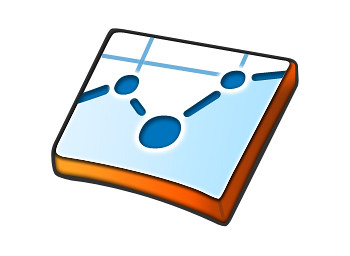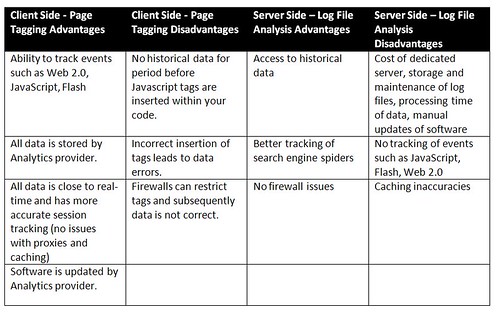The Complexity of Deciding Which Web Analytics Solution To Use
The majority of online businesses need a tool to measure traffic to determine sources of visitors to their web site and how visitors interact with their site. These measures help determine profitability and areas of the site that are performing well and others that visitors are having difficulties with. As many business owners are aware, the solution to obtaining this data is by using a Web Analytics program to measure and track your site statistics. Using Web Analytics software is integral to your search marketing strategy and is the key to keeping on top of your search traffic, referrals, visitors and more. With paid and free Web Analytics providers which one should you use?
 Photo by Search Engine People Blog via Creative Commons |
The answer to this question depends on the needs of your business and the type and amount of information that you require. If you’re a search marketing agency and measure pay per click campaigns then an Analytics solution will assist in justifying your clients spend and ideally show return on investment (ROI). For those purely interested in organic search traffic then an Analytics solution is the best way to determine and justify your sites return via search engine optimisation. The most popular paid Analytics providers today include Google Analytics, Yahoo IndexTools, Microsoft adCenter Analytics, Omniture, Webtrends and Coremetrics. Another conundrum before deciding on the right solution is whether you want server side Analytics (log file analysis) or client side Analytics (page tagging using JavaScript)?
If data storage is a concern, the best solution is to use a provider that stores the data for you and tracks page visits via page tagging. Otherwise you will need to store the log files on your own server and use a server side solution that does the analysis using your own business resources (the cost of the software, a possible dedicated server, software upgrades, log files maintenance and management all need to be accounted for). Both server side and client side solutions have their advantages and disadvantages as outlined in the table below:
Most solutions today will use page tagging as from a business perspective it is an easier, more accurate and convenient solution. Also as a number of Analytics providers offer the service for free, such as Google Analytics, and therefore the cost of using such a service is a non-issue.
The best solution to deciding which Web Analytics solution to use is to evaluate each product (try and obtain a free trial from paid solutions) and record the key advantages, disadvantages and differences between each and then make a decision on which solution would provide the most benefits to your business/organisation. As Google Analytics is a free and powerful Analytics solution, that has many of the same features of the paid Analytics providers, it is more advantageous to use it than not and it provides a foundation of data in which to compare statistics from other Web Analytics providers during evaluation. It’s important to note that no two provider’s statistics will be the same and remember it’s the data analysts that interpret this data and they need to make the right decisions to justify whether the Web Analytics provider chosen will benefit the business.
Either way I think you will all agree that the only way to gather information in relation to visitors to your site that can help make key business decisions is to choose a quality Web Analytics provider. If cost is an issue, eliminate this obstacle and sign up to Google Analytics today and evaluate whether it is the right solution for your business in 6 months time.
26,000+ professionals, marketers and SEOs read the Bruce Clay Blog
Subscribe now for free to get:
- Expert SEO insights from the "Father of SEO."
- Proven SEO strategies to optimize website performance.
- SEO advice to earn more website traffic, higher search ranking and increased revenue.

0 Replies to “The Complexity of Deciding Which Web Analytics Solution To Use”
Social comments and analytics for this post
This post was mentioned on Twitter by Alltop_SEO: The Complexity of Deciding Which Web Analytics Solution To Use http://bit.ly/bs1pp7 SEO.alltop.com
LEAVE A REPLY










